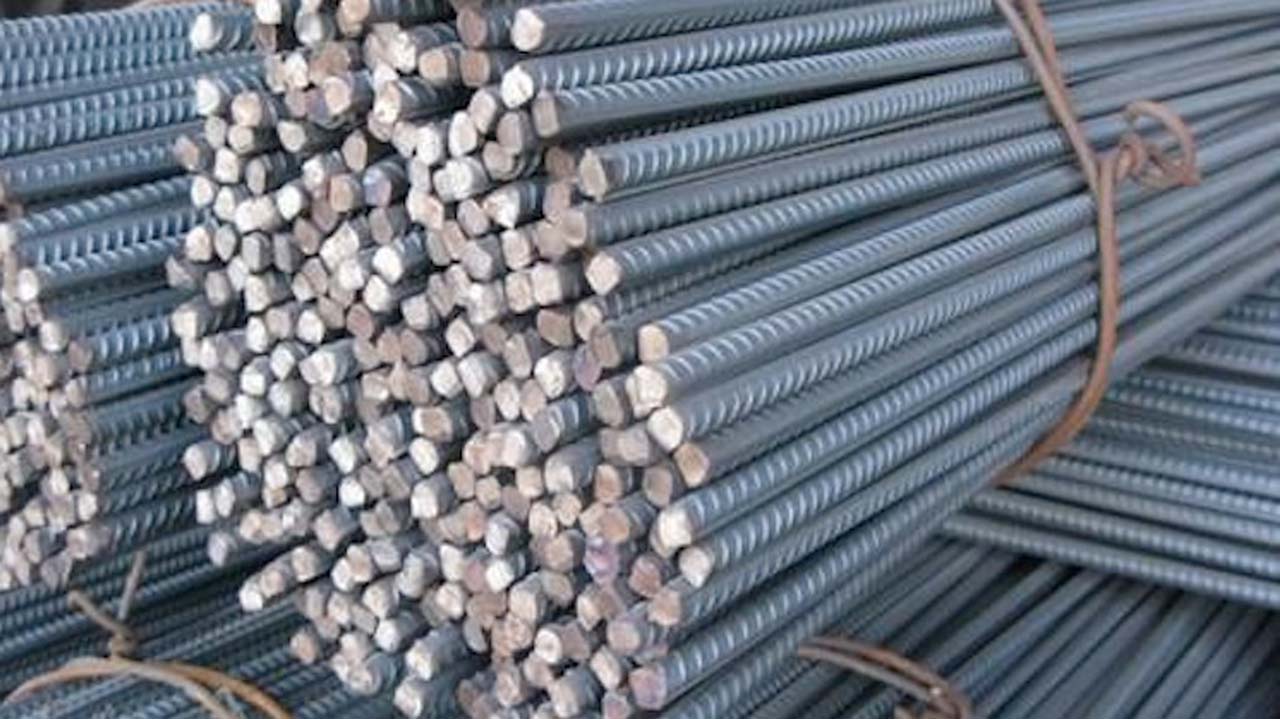Dreams of lower construction costs by many prospective homeowners may have come true, following the reduction of iron rods prices by the manufacturers.
There has been fresh increases in the price in the beginning of the year. Dealers in iron rods recalled that the market was inundated by over 20 per cent rise in prices since January and up to April 2019.
But the hike in the prices didn’t last, as the producers have to shift ground to the unfavourable building materials market and frequent rainfalls in different parts of the country, curtailed property developments.
The latest market survey by The Guardian shows that the 10mm and 16mm per tonne earlier sold at N235, 000 but now sell between N205, 000 and N210, 000.
Similarly, a tonne of the 20mm and 25mm iron rods, which previously sold at N240, 000 currently sell for N210, 000 while the 10mm rod tonne also rose to N235 but now sell at N210, 000.
According to a dealer who spoke with The Guardian in Lagos, Sola Adewuyi, the low production levels in the Nigerian iron and steel industry has become a major constrains for high productivity and rationale for incessant arbitrary increase in prices.
He said steel manufacturers have to grapple with the same challenges experienced by cement producers especially issues of unreliable power supply, which could drive up operating costs by more than one-third.
He said the main issues for sustainable iron and steel production in the country is for Ajaokuta factory to start working effectively.
“Sales record dropped when the over ten producers of iron rods in Lagos raised the prices because nobody wants to buy. They complained about huge operating costs. It was only last week that they slashed their prices.
The producers sometimes create artificial scarcity of the products in that instead of the industries producing a little of 10mm, 16mm and other sizes, they don’t do that. They focus on producing a particular size for days. I think the manufacturers also noticed a low sales that is why they reduced the price last week.”
“The Ajaokuta steel company has remained inoperative essentially due to what industrial experts observed as challenges of technology choice, management of technology and the economics of operation, which needs to be addressed by authority.”
Olawuyi maintained that increasing demand and low supply of the product would continue to be a trigger for increase in prices if certain fundamentals affecting the industry are not resolved. He emphasised that a strong iron and steel industry is projected to reduce demand for foreign currency used to import steel products stressing that it is the key driver for infrastructural growth of the country.
Meanwhile, the recent increase in the costs of major building based materials, especially cement, paints, blocks and timber among others, which are compounding the cost of construction and property prices.
Dealers of the products have appealed to the federal government to implement polices that would make the products affordable to developers and prospective home owners.
They expressed concerns about the negative consequences the hike in the cost of building materials had on sales and possible impacts on quality of housing delivery and affordability in the country.
A visit to some locations such as; Cement, Ikeja, Agbo-ile, Ojodu-Berger, Ogba, Agege and Sango parts of Lagos State, revealed that a bag of cement now sell from N2, 500.00 to N2, 700 depending on locations.
Speaking on the issue, a dealer in Dangote brand in Lagos, Mrs. Mercy Opaleye explained that a bag of the product, which was sold between N1, 700, N1, 800 and N2, 000 last year and early 2019, has however remained at N2, 500 while the elephant brand sells at the rate of N2, 650 since six months now.
“At the present price, people are still complaining that it is on the high side and we still see low patronage by consumers. Government could initiative measures that could further drag the price down to N1, 500 or N2, 000 for it to be affordable to everybody”, he said.
Investigations indicate that a fluctuation in the prices of cement is hinged on the difficult operating environment especially, high cost of automotive gas oil and the increasing electricity tariffs. Thus, consumers and developers are left at the mercy of manufacturers who enjoy increase profits while distributors and dealers experience limited patronage of the products.

For paints, the price for a 20 litres general-purpose type remained between N4, 500 and N5, 000 depending on the colour and location while prices of tiles remained unchanged.
The market price for wall tiles is N1, 700.00 and the floor tile maintained its N2, 200 tags as at the weekend. The cost of a 30 by 30 porcelain tile costs from N2, 500 to N2750 while the 40 by 40 packet of the same product is between N2, 800 and N3, 200.00.
The market survey for building blocks shows that the market retained between N100 to N120 price for six inches while the nine inches maintained its stand price at N150 to N170 depending on locations.
Also, prices for roofing sheets for 0.45 and 0.55 remain within the price range N1, 650 and N2000 depending while 0.70 and 0.90 aluminum roofing sheets range from N2, 500 to N3, 400 subject to the locations as well.
Source: guardianng




